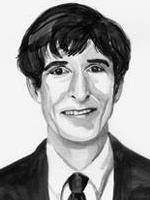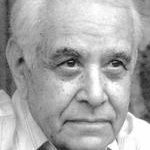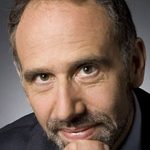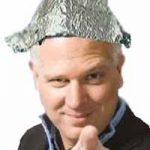 Mark Thoma is an interesting character. He’s an internet legend. For almost a decade, he’s been cranking out the blog Economist’s View, which is almost a clearing house of writing about economics. I get the impression he must read a thousand words per minute given the amount of information that he provides. If you are interested in economics, you read his blog every day. It’s as simple as that.
Mark Thoma is an interesting character. He’s an internet legend. For almost a decade, he’s been cranking out the blog Economist’s View, which is almost a clearing house of writing about economics. I get the impression he must read a thousand words per minute given the amount of information that he provides. If you are interested in economics, you read his blog every day. It’s as simple as that.
But other than the clear leftward tilt of material he highlights, we don’t get that much comment from him. That’s why I am always startled when I read an article by him, as I did yesterday at The Fiscal Times, Can New Economic Thinking Solve the Next Crisis? He isn’t the kind of guy to make a lot of noise or come off emotional the way that Paul Krugman or Brad DeLong do. Nor do you ever see that the kind of snarky satire of Dean Baker. But Thoma makes his points well, with subtlety even while being every bit as subversive as any economist.
I’m no economist, as any number of actual economists have pointed out to me over the years. But if I were to talk about rational expectations models (which I have), I would rant about how stupid they are. And I wouldn’t be wrong. As an old atmospheric modeler, I know a thing or two about models and the people who create them. And perhaps the most profound thing I know is that people model what they find easy to model. And then they try to justify ignoring what is not in their models. And when it comes to many modelers, the models become more real than the thing they are trying to model. So even though I see that real business cycle (RBC) models can provide insights into the way economies work, I scoff at them.
But Mark Thoma doesn’t. In his article he says of course these models are good. It’s a good thing to do because for many economists, these models are more dear than their children. (Fun fact: most economists raise their children in Skinner boxes.) He points out that models are just tools. (A fact that many modelers forget.) And that the real issue for the economics profession is that over the last couple of decades, it has become very limited in the kinds of questions that people are allowed to ask.
One example he provides is that by using representative agent models, economists could not model financial markets. How could you if each agent thought the same thing about a financial asset? If they both think it will go up in value, then the one who owns it isn’t going to sell it. The point here is that tools have to be developed to answer questions. It does us little good to simply apply our existing tools to problems that can be solved with them. This takes us to the old saying, “If all you have is a hammer, everything looks like a nail.”
Of course, Thoma is too nice a guy to come right out and say the truth: the problem isn’t just that the economics profession fell in love with its tools. It has embraced a political philosophy that believes that markets are perfect. Economists missed the financial crisis because they didn’t believe it could happen. And as a result of that, they didn’t build necessary models because they didn’t believe they were necessary. It’s like building a model of the geographical distribution of unicorns. What’s the point?
The problem that I see is that even after the financial crisis and the housing bubble, much of the economics profession still seems to think that such things cannot happen. Economics has always been a field of study with an especially big problem with ideological priors. And so there will always be people on both sides of the political divide banging the drum for their ideologies. But there is a truth in the matter. And you can see it in the models of investment banks and government bureaus — places where getting the correct answer matters. And they all use models that are basically Keynesian.
As Deep Throat said, “That should tell you a lot.”





